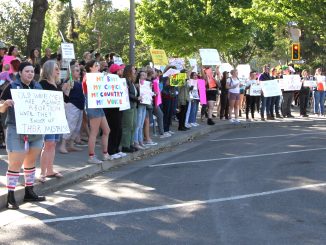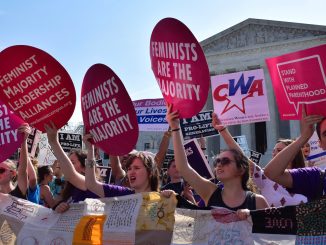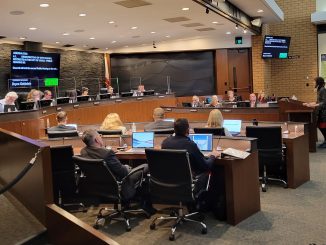In contemporary American politics, the division between winners and losers is extreme. Winner takes all. No compromise. Our government representatives are often solely concerned about the needs and ideals of their supporters, at the expense of the rest of their constituency.
Sometimes, they even sell constituents short to get their way.
In 2016, when President Obama nominated Merrick Garland to replace Antonin Scalia on the Supreme Court, then-Senate Majority Leader Mitch McConnell blocked the selection from even being considered on the grounds that a new president would soon be elected (eight months later) and that person should get to pick. Cut to 2020, after the death of Ruth Bader Ginsburg: McConnell and his fellow Republicans confirmed President Trump’s nominee—Amy Coney Barrett—a mere two weeks before the election. McConnell didn’t break any laws, but he was blatantly disingenuous.
As a result, Trump got to pick three conservative justices—putting us where we are now, facing the very real prospect that the Supreme Court could overturn Roe v. Wade, the landmark decision that, since 1971, has protected a women’s right to choose. For anyone concerned about civil rights in this country, it’s a disturbing prospect, one that goes against the wishes of the majority of Americans—61 percent of whom believe abortion should be legal in all or most cases. The decision as drafted would also put into jeopardy contraception, interracial marriage, same-sex marriage and other personal protections.
The big issue at play here, aside from representation, is fairness. Sure, we have to live with the results of elections, but shouldn’t gaming the system have consequences as well?
In our local political sphere, we see the same kind of slippery partisan maneuvering. At the end of 2021, when the Butte County supervisors oversaw the redrawing of their own districts, there was much contention between the two Democrats and the three Republicans over draft maps that would tip the balance even further in favor of the conservative majority—contrary to California’s FAIR MAPS Act.
The map that was ultimately chosen was very similar to one drawn up by Josh Cook, chief of staff for Republican state Sen. (and current gubernatorial candidate) Brian Dahle. The conservative supervisors—Tod Kimmelshue, Doug Teeter and Bill Connelly—denied gerrymandering and made cases for selection based on creating two ag districts and giving rural residents a greater voice. The truth is that the political makeup of District 2, currently represented by Democrat Debra Lucero, was significantly altered. The numbers went from 11,482 Democrats and 8,455 Republicans to a nearly even 9,781 and 9,064. Maybe the huge shift is an honest result of the process, but it’s worth noting that the Republican majorities in Kimmelshue, Teeter and Connelley’s districts remained at virtually the same ratio as before the redistricting. The decision by the board obviously has the potential for serious consequences on the outcome of the current race for District 2. I hope those who serve political interests over the citizenry will face consequences as well and be held accountable when it’s their turn at the polls.
More stories from CN&R 2022 Primary Issue:
“Primary primer“
“Reppin’ the county“
“CN&R Endorsements“
“Candy’s house“




I sure hope the people moving into the Pallet shelters are able to obtain a table outside and a place to BBQ. Not enough room inside.